Wild Fowl Trust keep endangered birds safe amid covid19
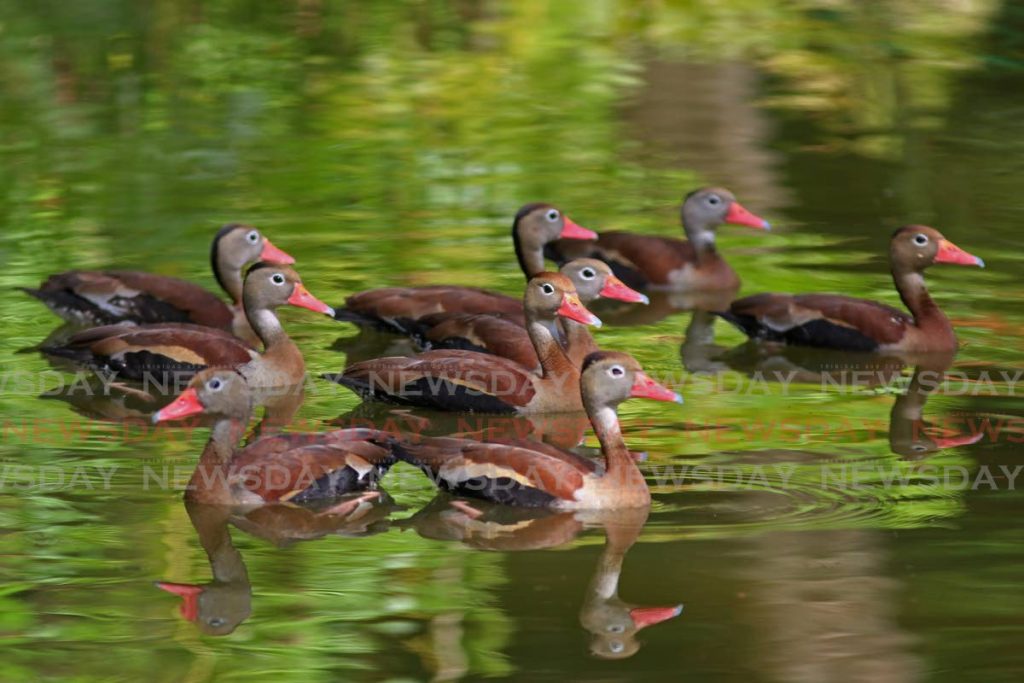
Upon visiting the Pointe-a-Pierre Wild Fowl Trust, visitors are first directed to the trust’s learning centre.
There, they are greeted by a blue-and-yellow macaw named Frankie which was smuggled into TT, in a sock, in 2009.
Upon being rescued from his smugglers, it was discovered Frankie’s wing bones were severely broken leaving him unable to fly.
While it’s not be possible to release Frankie back into the wild, he is well cared for at the trust and stands resiliently to greet visitors.
Like Frankie, the trust itself has been averted away from a damning fate, in the face of covid19 challenges, thanks to the trust’s caretakers who remain committed to keeping the site open and steadfast in continuing its conservation work.
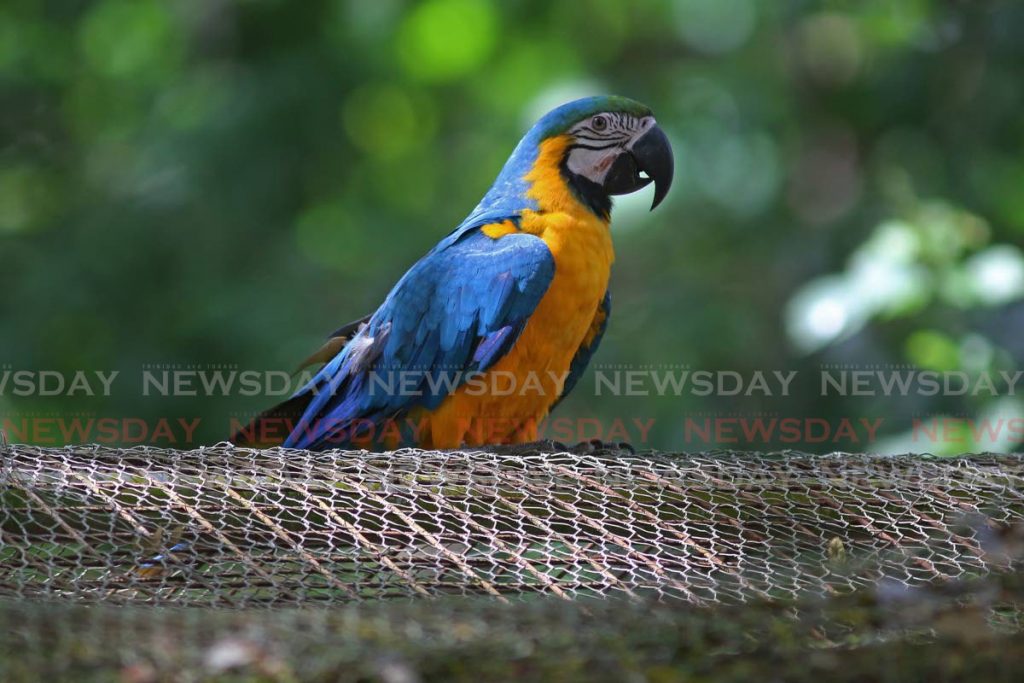
In a visit to the trust, to see how it’s coping with the challenges posed by covid19, Sunday Newsday was given a guided tour by education officer Jaleen West and volunteer Curtisha Millette.
“Visitors (at the trust before covid19) were mostly locals like students, children, families, and church groups.
“So, we still get those people coming to us which has helped us stay afloat in these difficult times and we’ve been functioning," said West who has served as the trust’s education officer since 2014.
Like most places whose lifelines were social gatherings, the trust was closed to the public last March following the restrictions put in place, at the time, to limit the spread of covid19.
But while the trust was closed to public visits, its conservation work continued.
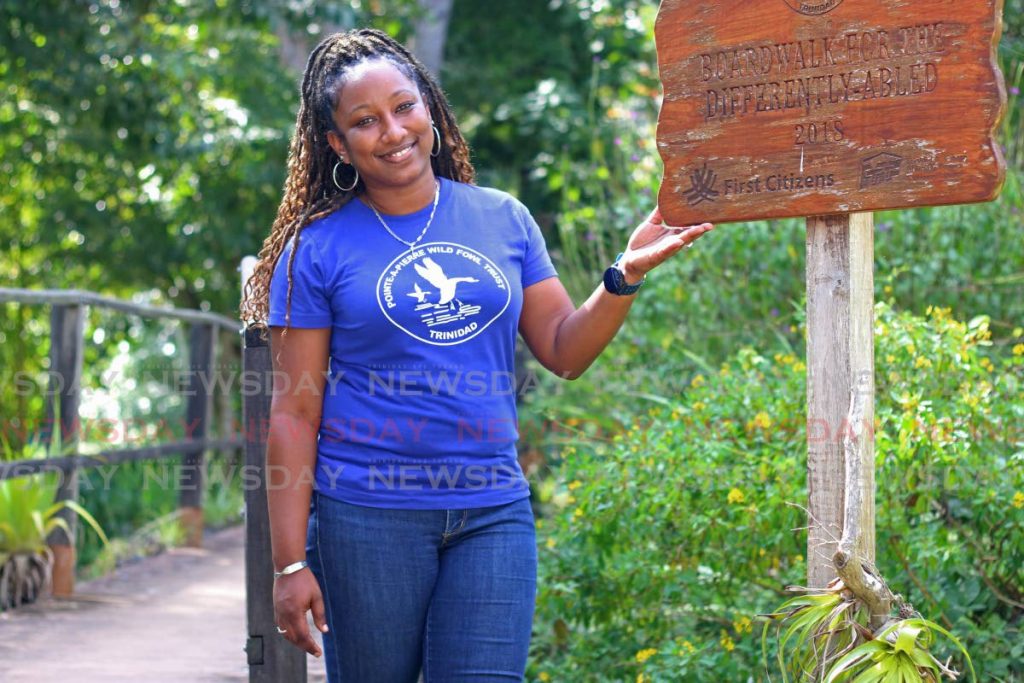
The trust currently runs an avicultural programme which seeks to breed and conserve the populations of wetland species that are endangered in TT.
To date over 40 blue-and-yellow macaws, like Frankie, have been bred and released into the wild under the programme with 15 being released as recently as last December.
Other species bred under the aviculture programme includes the scarlet ibis, black-bellied whistling tree ducks, white-checked pintails, white-faced whistling ducks, fulvous whistling ducks, and wild Muscovy ducks.
“Doing the work, we do, in terms of breeding endangered birds, the staff was still on hand during the first public closure.
“Myself and the trust’s avicultural team were here to make sure the birds were fed, and the area was maintained. We were still functioning internally,” said West.
After the easing of initial covid19 restrictions in late June, last year, the trust reopened.
But a few months later it was closed, once again, given the high volume of visitor traffic at the trust.
While the visits were welcomed, the safety of the trust’s staff members and the animals were considered.
After much planning, and in accordance with the Ministry of Health’s safety guidelines, the trust reopened its doors once again to visitors last October.

However, only groups of no more than ten people are now allowed to tour the trust at any given time.
While the various species found at the trust are no doubt alluring to visitors, they aren’t the only star attractions.
Located on the trust’s 74 acres of land are two reservoirs which date back to the trust’s inception in 1966.
Upon the trust’s creation on the grounds of what was then the Texaco refinery, the reservoirs were used by the refinery at the time.
With wild ducks frequenting the reservoirs, the employees of the then oil company would hunt the ducks.
This changed when the trust was created in 1966.
As the trust continued to expand its conservation work, the first reservoir greeting visitors was converted into a man-made wetland over time.
Explaining the decision, West said, “We are breeding endangered birds and we want them to feel comfortable in the area (with the man-made wetland) to stay while having their young.”
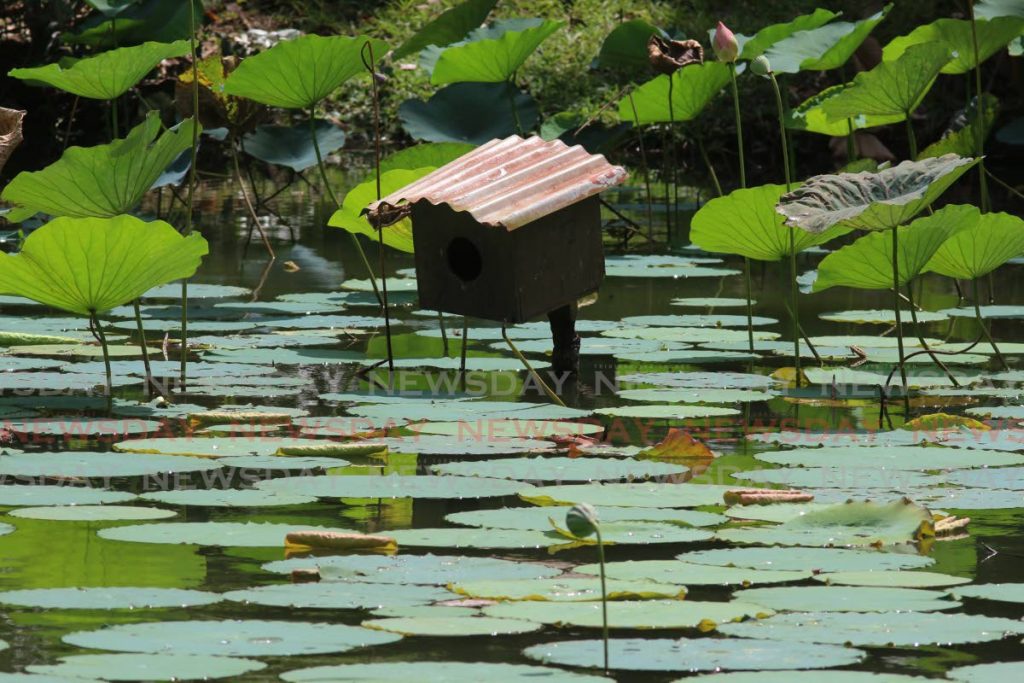
Over the years, the trust’s wetland ecosystem has been widely used for educational purposes by students at all levels ranging from secondary schools to tertiary level educational institutions.
West credits the trust’s current president Molly Gaskin for pioneering the trust’s environmental education programme.
“She (Gaskin) decided it wasn’t enough to just breed these birds but also educate people about it.
“She started going into schools and bringing people to visit the site. As such, she was the engineer behind the environmental education and awareness programmes people experience when they visit the trust,” said West.
But Gaskin didn’t only go to schools, they also came to trust.
Before covid19, West said as many as two schools would visit the trust daily which made school group’s the trust’s largest source of visitors.
Expectedly, due to covid19, that has all changed.
With the physical closure of schools, the trust has experienced a drastic decline in bookings.
However, the trust is adapting.
“We (at the trust) have shifted our thinking. While schools may not be coming on field trips, we are encouraging parents to bring their kids.
“We’ve also started liaising with teachers in the hope that they will give the kids projects to do so the parents would bring them on visits,” said.
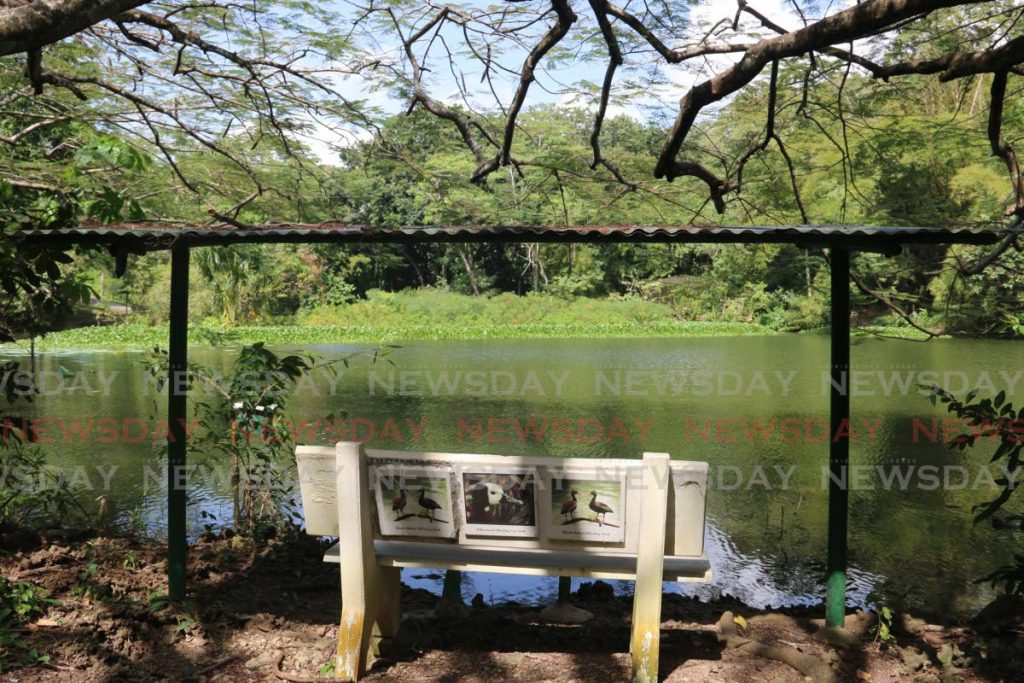
Thus far, the strategy has been successful with students visiting the trust to complete projects.
As recently as last October, students at the University of Trinidad and Tobago visited the trust to get information on the scarlet ibis kept at the trust for research work.
The trust has also done a handful of virtual presentations.
Students also have the opportunity to volunteer at the trust and assist with its daily operations by assisting with tasks like watering plants, pruning plants, assisting with nature walks and contributing to the general upkeep of the trust.
Sharing her experience as a volunteer was Millette who started volunteering at the trust, in 2015, after a school visit.
“I have always been interested in the trust’s environment, animals and purpose since the field trip.
“Volunteering at the trust every day is a memorable experience. When people come for the first time and you tell them about the trust it takes their breathe away.
“It makes me happy as a person to know that I can teach people these things,” said Millette who said volunteering has also been good for character-building.
While volunteering opportunities are mainly targeted towards students, West said anyone can feel free to reach out and volunteer.
Though the trust is staying afloat, West said public support of the trust’s activities is important.
For a small fee, people can enjoy a nature walk around the park.
“We do our nature walks twice every day including Saturdays and Sundays. But we are encouraging people to have to book in advance (because of covid19).”
The walks vary in length based on personal preferences, but the price remains the same regardless of the length.
For the walk, children under 12 pay $5, children aged 13-17 pay $10, while adults pay $20.
Apart from the nature walk, the small fee also grants visitors access to the trust’s other attractions which include three hiking trails and access to a variety of collections at its learning centre.
People interested in visiting or volunteering at the Pointe-a-Pierre Wild Fowl Trust can do so by contacting the trust at 612-2463 ext. 2512. More information about the trust can also be found at papwildfowltrust.org

Comments
"Wild Fowl Trust keep endangered birds safe amid covid19"